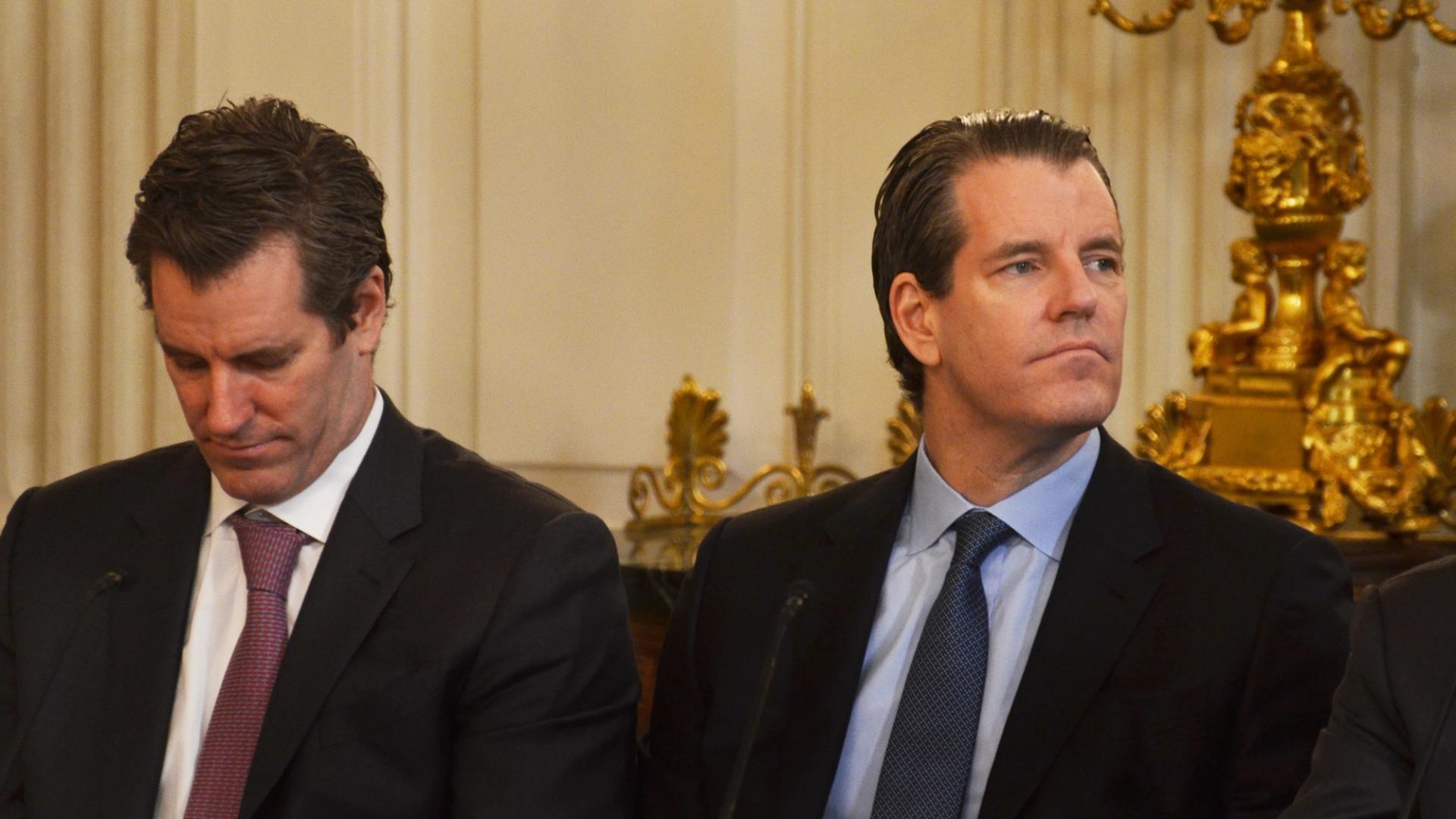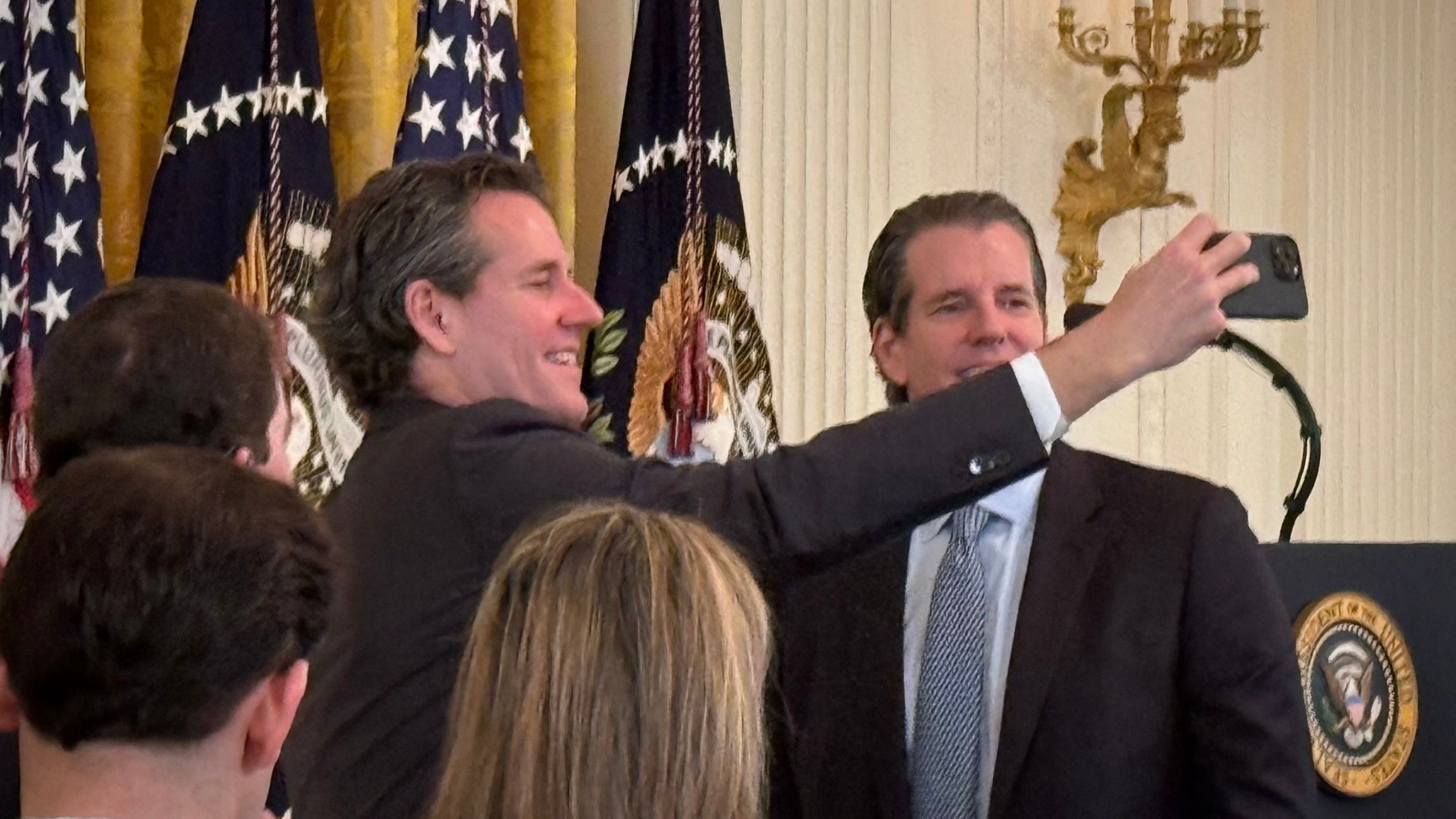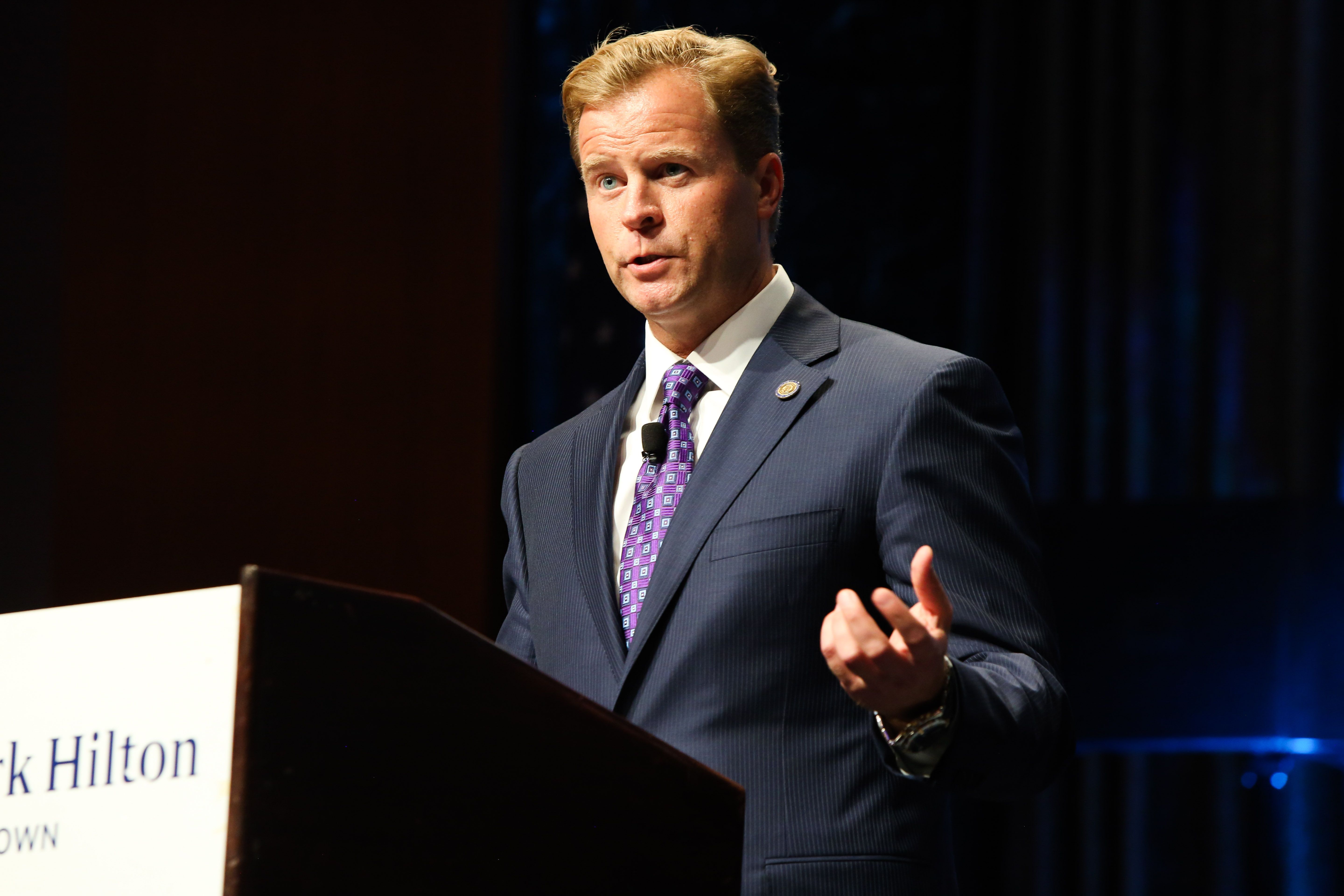
Tyler Winklevoss, the CEO of crypto exchange Gemini, is at the center of a rift over support of President Donald Trump's nominee to run the obscure-but-highly-relevant regulatory agency, the Commodity Futures Trading Commission.
He thinks former CFTC Commissioner Brian Quintenz is a bad choice, and he's been talking with officials from the Trump administration about it, he told CoinDesk in an interview. That coincides with the White House slamming the brakes on a necessary step in Quintenz's confirmation process in the Senate.
The administration didn't give the Senate Agriculture Committee a full explanation when it halted Quintenz's committee vote this week that would have advanced his approval to a final Senate floor vote. And the White House didn't immediately respond to questions from CoinDesk about what's getting in the way of the nominee, who until recently served as the regulatory chief for a16z crypto and is on the board of prediction-markets firm Kalshi, though the White House has reportedly continued to back the nomination.
"Many in our industry have significant concerns about this nomination," Winklevoss told CoinDesk. "Mr. Quintenz is not aligned with the president's stated agenda and objectives."
Read More: Quintenz, Trump's Pick as Potential U.S. Crypto Watchdog, Delayed by White House
Winklevoss and his twin brother, Cameron, fellow co-founder of Gemini and other shared business interests, are among the prominent crypto insiders who've occupied a front seat — literally — in the White House's recent campaign to elevate the U.S. digital assets industry. When Trump hosted a White House crypto summit, the brothers were seated among the primary guests. And when the president signed the Guiding and Establishing National Innovation for U.S. Stablecoins (GENIUS) Act into law, they were sitting in the front row beside other prominent figures, including Coinbase CEO Brian Armstrong and Tether CEO Paulo Ardoino.

Trump even mentioned the brothers in his remarks about the first big crypto legislative win. So they've come to occupy a prominent place in the president's view of the crypto industry, raising questions about whether Gemini can get Quintenz booted from consideration.
At this late stage in the confirmation process, a significant delay or starting over could weigh on the industry's policy priorities. While the CFTC may largely be invisible to the U.S. public, its importance for the crypto space has been sharply rising as lawmakers in Congress get closer to passing legislation that would set up crypto markets regulation in the U.S. But Tyler Winklevoss argued it would be a mistake to put Quintenz in charge.
The Gemini CEO contends that Quintenz has the wrong views on protecting developers, central bank digital currencies (CBDCs), federal spending and is raising ethical red flags with reported communications he's made on behalf of the company he serves as a board member, Kalshi.
Developer liability
"Quintenz supports prosecuting smart contract developers," Winklevoss said, calling it a "disqualifying position."
"Smart contract developers need to be protected in order for innovation to flourish and to realize President Trump's vision of making America the crypto capital of the world," he said.
In October 2018, then-Commissioner Quintenz gave a speech on smart contracts, saying that a developer should potentially be seen as legally liable if they could recognize their work would be used to skirt government regulations. With Roman Storm, a developer behind Tornado Cash, currently awaiting his jury verdict in a U.S. criminal trial, the question of a software developer's liability is at the forefront.
The industry has a strong take on this matter, arguing that creators shouldn't be punished for how their creations are used. In much the same way that manufacturers of cars and firearms communication technologies aren't pursued by criminal prosecution for how their products are used by bad actors, the sector argues that digital assets innovators similarly shouldn't be on the hook for how their platforms and tools are utilized downstream, as long as the products are not actively managed by those who wrote the code.
The industry position seems to fall in line with a speech Securities and Exchange Commission Chairman Paul Atkins gave on Thursday to announce his agency's "Project Crypto," in which one of its effort will be "protecting pure publishers of software code."
Kalshi
In his objections to Quintenz, Winklevoss also flagged recent reports on the former commissioner's communications with the CFTC as a private citizen, as he allegedly sought information on the competitors to prediction market platform Kalshi, where he serves on the board of directors.
Winklevoss said recent revelations of emails sought under the Freedom of Information Act, in which Quintenz and an associate seem to have requested insight into the agency's work and deliberations on Kalshi rivals, "raise serious questions."

The CFTC has waged a longstanding battle over regulation of the prediction markets. The position of the previous leadership under Chairman Rostin Behnam was that the activity should be regulated as gambling, and he had concerns over the agency policing political elections — one of the high-profile arenas of prediction betting. Behnam's agency fought the industry in court, including Kalshi, though it recently abandoned that dispute.
While CFTC Acting Chairman Caroline Pham has argued the agency took the wrong path, she said it's difficult to reverse its position on event contracts, which she characterized as "a sinkhole of legal uncertainty and an inappropriate constraint on the new administration."
CFTC funding
Winklevoss also raised issue with Quintenz's remarks on the likely need of more money and resources at the CFTC as it takes on oversight of a swath of U.S. crypto activity.
"The Trump Administration wants to cut red tape and deregulate," Winklevoss said. "This nominee continues to advocate for dramatically increasing budgets and overregulation that will lead to regulatory capture."
In his Senate confirmation hearing, Quintenz suggested a significant budget boost will probably be needed if the CFTC is eventually tasked as the leading federal regulator for the crypto markets.
However, the question of funding has long been central to discussions on crypto legislation to overhaul CFTC authority. Republicans have routinely acknowledged that the agency is likely to seek more resources to allow it to oversee a broad new area of the financial sector and — for the first time — actively regulate a spot market, meaning a market where actual assets are traded, such as bitcoin (BTC).
When asked about it in a CoinDesk TV interview this week, top Trump crypto adviser Bo Hines granted that the agency may need more resources.
"Congress is well aware that the CFTC might require some additional labor, but I think that's something that we can easily get done through legislation," Hines said.
CBDCs
The Gemini co-founder also interpreted some of Quintenz's past comments on central-bank digital currencies (CBDCs) as being open to discussion on a U.S. version — a possibility that's treated as toxic by Republican politicians and most of the crypto industry. But Quintenz's remarks in 2020 were relatively superficial, suggesting that it'd be important that the CFTC "stays abreast of legal and regulatory questions" around the government tokens, which he described in public remarks as an "area of particular interest to me."
Even an interest should be disqualifying, Winklevoss contends.
"You should not be interested in CBDCs or entertaining that kind of totalitarian technology," he said. "That in itself is disqualifying and against everything our industry stands for."
From congressional candidates up to Trump, Republican lawmakers have painted the concept of CBDCs as a government campaign to seek control and surveillance over citizens' finances. But the idea never progressed further than a discussion point with some Democratic lawmakers and a topic of technical study among regulators and has never risen to an active project in the U.S., as China and Europe moved to implement government-backed digital currencies.
Federal Reserve officials, including Chair Jerome Powell, had routinely said they wouldn't act without Congress and the White House, and if the central bank were ever to issue a digital dollar, the officials said transactions should be managed by U.S. banks and not the government.
CFTC leadership vacuum
The pause in Quintenz's confirmation process has thrown up some significant questions about the future leadership of the CFTC. The five-member commission currently has only two members — one from each party — and both of them have said they're leaving soon. That could potentially leave a freshly confirmed chairman alone atop the agency.
But if Quintenz's nomination is abandoned or significantly delayed, people familiar with Acting Chairman Pham's plans suggest she's eager to move on, potentially in the coming weeks. If she can't stay to chair the commission, it raises questions about what happens next — whether President Trump would be under pressure to shove the Democratic commissioner, Kristin Johnson, out of the CFTC, so the agency wouldn't be taken over by a Democrat's agenda, and how long the CFTC may be without an official chairman.
The Senate is heading into its August recess, leaving its Washington work behind for a while. Even if things get back on track, his final confirmation vote by the overall Senate could be further delayed.
If Quintenz does continue through the process and become chairman, some legal experts have cast doubt on the strength of policymaking from a single commissioner on what's meant to be a five-member group.
"I think when looking at the quorum rules, the agency can still act," former CFTC Commissioner Christy Goldsmith Romero told CoinDesk TV in a Thursday interview with Jennifer Sanasie. "But is that the best way to act?"
She suggested the potential investors in the space — including from traditional financial institutions — "they are all going to want some certainty." And that can be provided, she said, by the White House nominating more names and getting a full commission confirmed by the Senate, "but we haven't seen that, yet."
When questioned about the value of having both parties represented on the commission during his confirmation hearing, Quintenz declined to second-guess Trump's nomination process.
"The president is the head of the executive, and the president will make his own decisions," he said.
免责声明:本文章仅代表作者个人观点,不代表本平台的立场和观点。本文章仅供信息分享,不构成对任何人的任何投资建议。用户与作者之间的任何争议,与本平台无关。如网页中刊载的文章或图片涉及侵权,请提供相关的权利证明和身份证明发送邮件到support@aicoin.com,本平台相关工作人员将会进行核查。




